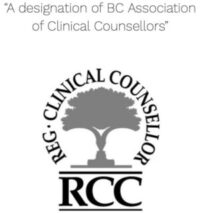Eating disorders are complex mental health conditions that affect millions of people worldwide. They can have devastating physical and emotional consequences if left untreated. In this blog post, we will explore the different types of eating disorders, their signs and symptoms, and the path to recovery.
Understanding Eating Disorders: Eating disorders are not simply about food; they are often a manifestation of underlying emotional, psychological, and societal factors. The three most common types of eating disorders are:
- Anorexia Nervosa: This disorder is characterized by an extreme fear of gaining weight, leading to restricted food intake and a distorted body image.
- Bulimia Nervosa: Bulimia involves recurrent episodes of overeating followed by compensatory behaviors like self-induced vomiting, fasting, or excessive exercise.
- Binge-Eating Disorder: Individuals with this disorder experience recurrent episodes of overeating, similar to bulimia, but without the compensatory behaviors.
Recognizing the Signs: Identifying the signs of an eating disorder can be challenging because those affected often hide their behaviors and feelings. However, there are some common indicators to watch for:
- Dramatic weight loss or gain
- Obsession with food, calories, or dieting
- Excessive exercise
- Social withdrawal
- Frequent trips to the bathroom immediately after meals (indicating purging)
- A preoccupation with body size and appearance
- Physical symptoms like dizziness, fatigue, or hair loss
- Secrecy or defensiveness about eating habits
If you or someone you know is displaying these signs, it’s crucial to seek professional help as early as possible.
The Road to Recovery: Recovering from an eating disorder is a challenging journey that requires patience, support, and professional guidance. Here are some key steps in the recovery process:
- Seek Professional Help: Start by consulting a healthcare provider or mental health professional who specializes in eating disorders. They can help create a personalized treatment plan.
- Therapy: Psychotherapy, particularly cognitive-behavioral therapy (CBT), is often a central component of eating disorder treatment. It helps individuals identify and change harmful thought patterns and behaviors related to food and body image.
- Nutritional Counseling: Working with a registered dietitian can help individuals develop a healthy relationship with food and establish balanced eating habits.
- Medical Monitoring: Regular medical check-ups are essential to monitor physical health and address any complications arising from the disorder.
- Support Network: Having a supportive network of friends and family can make a significant difference in recovery. Consider joining a support group to connect with others who understand your journey.
- Self-Care: Practicing self-care techniques like mindfulness, stress management, and relaxation exercises can aid in recovery by addressing underlying emotional issues.
Conclusion: Eating disorders are serious mental health conditions, but recovery is possible with the right support and treatment. It’s important to remember that seeking help is a sign of strength, not weakness. If you or someone you know is struggling with an eating disorder, reach out to a healthcare professional immediately. Recovery is a journey, and with the right guidance, you can regain a healthy relationship with food and body image, leading to a happier and more fulfilling life.

